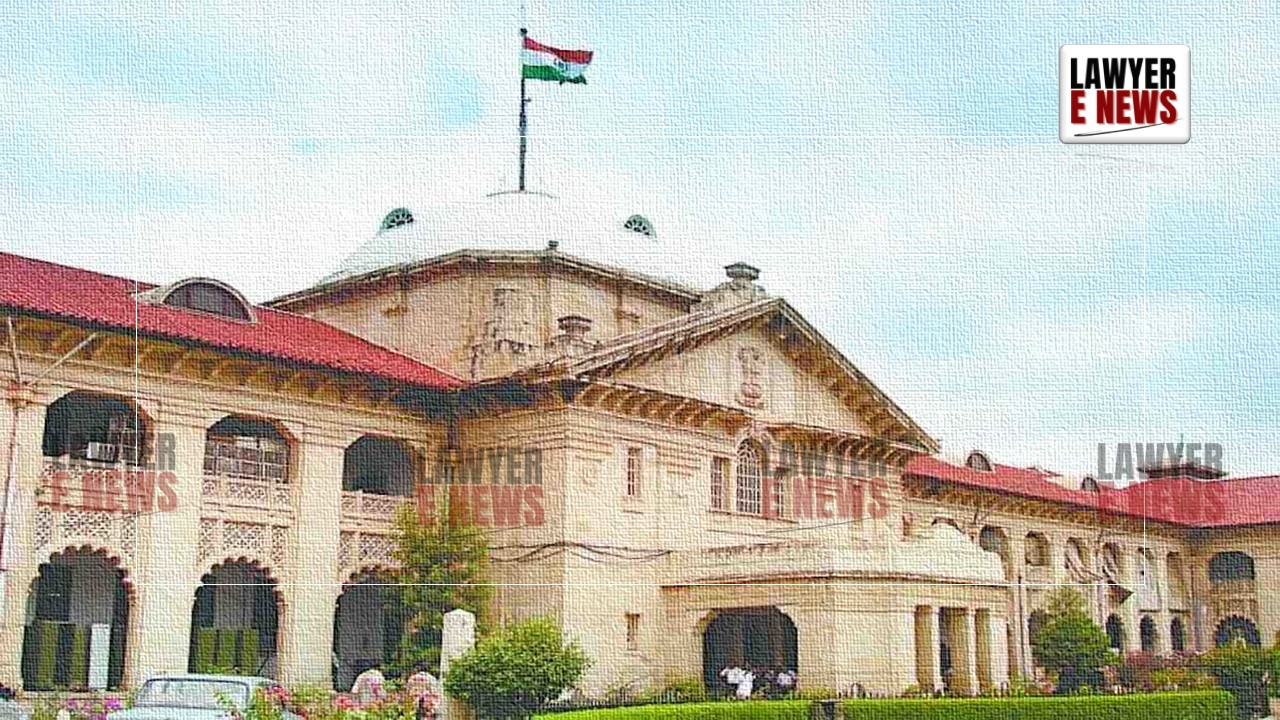-
by sayum
21 February 2026 2:44 PM



“Where the Propounder Fails to Dispel Legitimate Doubts, No Sanctity Attaches to the Document Merely Because It Is Registered”— Allahabad High Court reaffirmed the foundational principle that a registered Will does not, by itself, guarantee validity unless executed in strict compliance with law and free from suspicious circumstances. Justice Rajnish Kumar allowed the appeal and set aside the appellate court’s decree, holding that “merely because the Will is registered, it will not hold good and valid,” where statutory requirements remain unmet and the Will is enveloped in grave doubts.
The dispute arose from a Will executed on 02.11.1998 by Ram Chandra Pandey, who was then 84 years old and suffering from serious ailments. The Will disinherited his eldest son, Sharda Prasad, and divided his estate among his other four sons. The plaintiffs challenged the Will as a product of undue influence, fraud, and ill-health. The Trial Court, after a detailed evidentiary analysis, ruled in favour of the plaintiffs and cancelled the Will. However, the First Appellate Court reversed the judgment on the strength of its registration and a single witness’s testimony.
The plaintiffs approached the High Court in second appeal under Section 100 CPC, raising substantial questions of law, including whether the appellate court had erred in treating the Will as valid despite flawed attestation and unremoved suspicious circumstances.
Justice Rajnish Kumar began by underscoring that “proof of a Will stands on a higher degree in comparison to other documents,” citing the Supreme Court’s consistent view from Jaswant Kaur v. Amrit Kaur and Gopal Krishan v. Daulat Ram. The Court held that while the Indian Succession Act and the Evidence Act govern formal attestation, the conscience of the Court must also be satisfied that the Will was freely and voluntarily executed.
The Court found the attesting witness, Ram Sagar Mishra (DW4), unreliable and incapable of fulfilling the statutory burden under Section 68 of the Evidence Act. “He could not confirm whether the Will was signed by the testator in his presence… he even misstated the number of witnesses on the Will,” the Court noted.
Critically, the judgment stressed that: “In cases where the execution of a Will is shrouded in suspicion, proof ceases to be a simple lis between plaintiff and defendant. The true question becomes whether the evidence satisfies the conscience of the Court.”
The Court accepted that Ram Chandra Pandey was physically and mentally feeble at the time of the Will, suffering from high blood pressure, heart disease, and hearing impairment. The Trial Court had noted that his signatures on the Will were “non-uniform” and that his photograph appeared without spectacles, which he reportedly wore regularly—an anomaly that added to the suspicion.
Furthermore, the beneficiaries, i.e., all four sons except the disinherited one, were present throughout the drafting and registration process. The Court found this troubling:
“The presence of all beneficiaries at each and every stage, coupled with the testator’s vulnerability and lack of any independent legal advice, creates serious doubt about the Will being the result of his free and informed volition.”
The High Court took strong exception to the First Appellate Court’s failure to address the trial court’s findings or apply the settled law on suspicious circumstances. “The appellate court merely relied on the registration of the Will and one witness’s testimony without removing the doubts raised by the plaintiffs,” the Court remarked.
Referring to Bharpur Singh v. Shamsher Singh, the judgment reminded that “wherever suspicious circumstances exist, the propounder must dispel them by cogent and convincing explanation before the Will can be accepted as genuine.”
Justice Rajnish Kumar concluded that the burden had not been discharged in this case: “The trial court had rightly found that the Will was executed under suspicious circumstances. The first appellate court allowed the appeal by recording illegal and perverse findings.”
Restoring the Trial Court’s decree and cancelling the Will, the High Court declared that the propounder failed to meet both the evidentiary and moral standards required under law. The appeal was allowed with costs, sending a clear message that:
“Suspicious circumstances—whether pleaded or apparent—must be removed by the propounder of the Will. In the absence of such clarity, registration cannot cure legal or moral infirmities in testamentary instruments.”
Date of Decision: 2 May 2025
